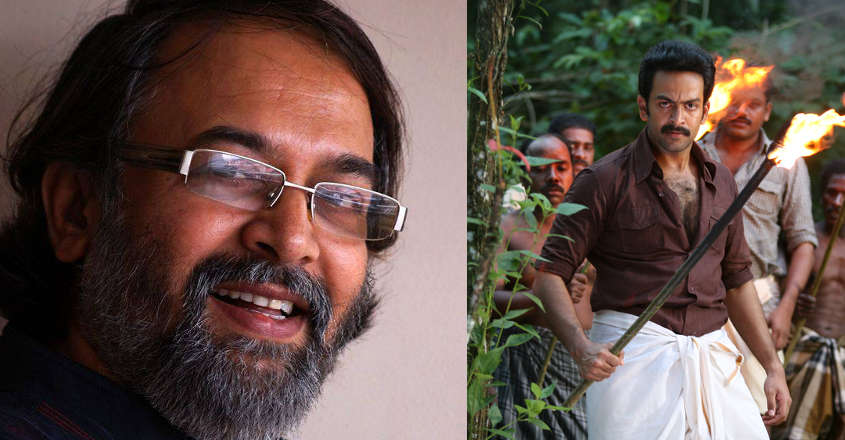Decoding a Scene | Madhupal on killing of Naxal leader in 'Thalappavu'
Mail This Article
Portraying a real-life incident on screen is no easy task, actor-director Madhupal would vouch for it. His 2008 directorial debut 'Thalappavu', starring Prithviraj, Lal and Atul Kulkarni, was based on the lives of Naxal Varghese and police constable P Ramachandran Nair, who years later confessed to have shot the rebel leader.
Madhupal, in a candid chat with Anagha Jayan E, decodes the scene in which Naxal Joseph is killed by the police in a fake encounter. Madhupal went inch by inch to make the scene as close as the real incident.
"The sequence where the police shoot to kill Joseph (Prithviraj) after tying him up in a forest was a complicated one to portray on screen. We wanted the scene to resonate the same emotions in audience as the real incident after all the cinematic improvisations. We all know the incident well from the book (constable Ramachandran Nair confessed to killing Varghese in his autobiography, Njan Jeevichu Ennathinte Thelivu – A testament of my life)," said Madhupal.
To achieve this, they resorted to detailing of physical activities and emotional mapping of each character till the shot is fired upon Joseph. "Like bringing Joseph to the spot, tying him up, assigning the unwilling cop to kill him, conflicting emotions of Joseph and S Raveendran Pillai (Lal), etc. The build up was intense and challenging," said the director.

The conflict of emotions that Lal’s character goes through gave the director a freeway to his goal. "It is rewarding when people, even from new generation, approach me to discuss on this particular scene and appreciate the making," said Madhupal.

